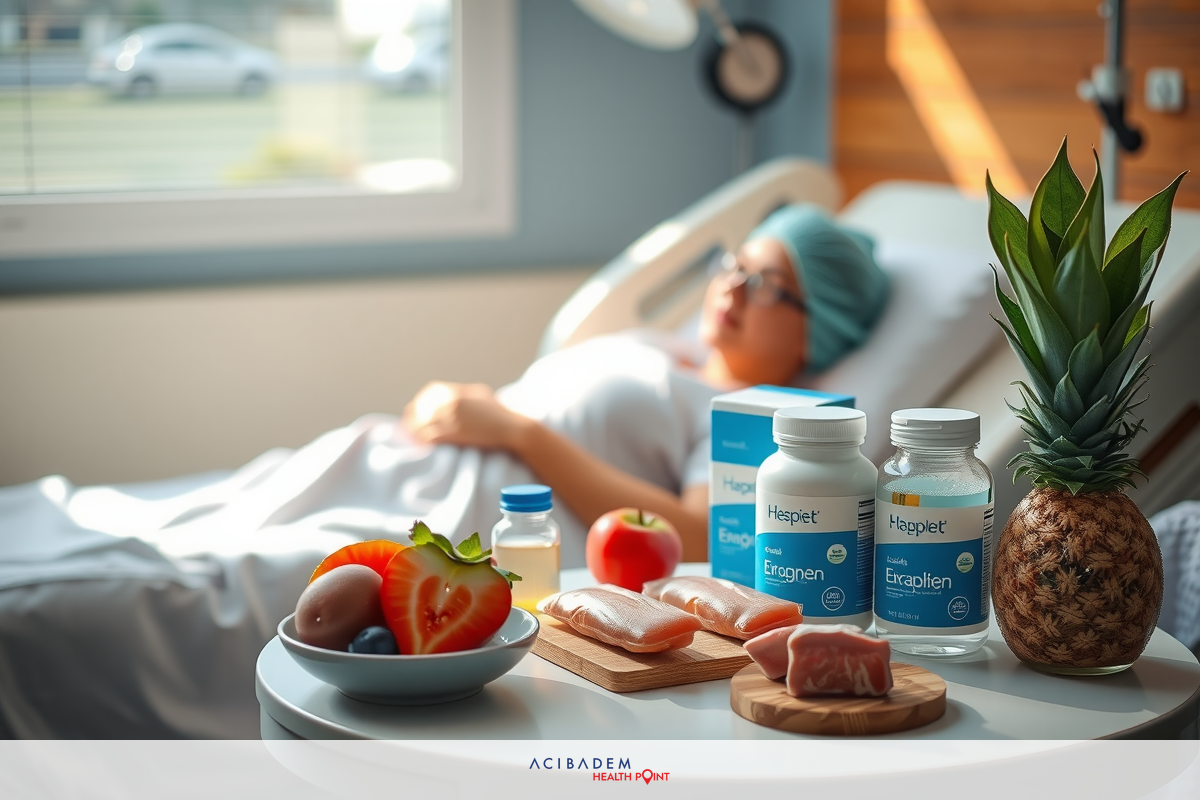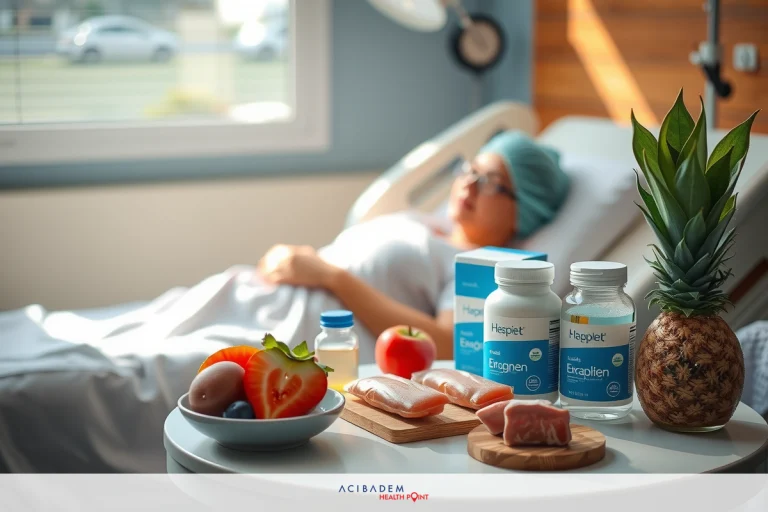What Can You Eat After Laser Nose Surgery?
What Can You Eat After Laser Nose Surgery? After undergoing laser nose surgery, it’s quite understandable for patients to have questions about the best type of diet to follow during the recovery period. The body needs specific nutrients to heal, and what we eat can significantly affect the recovery process. It’s important to remember that every person’s dietary needs may differ based on their overall health, type of surgery, and personal tolerances.
Eating the right foods after surgery can help speed up healing, reduce post-surgery complications, and boost energy levels. This article aims to provide helpful guidelines on what to eat after laser nose surgery. We will focus on nutrient-rich foods that not only promote healing but are also easy to chew and swallow. By following these suggestions, you can enhance your recovery process and make the most out of your surgical results.
Recovery Diet: Nourishing Your Body for Healing
After undergoing laser nose surgery, it is important to follow a post-operative diet that promotes healing and provides your body with the necessary nutrients. Consuming the right foods can significantly support your recovery process and enhance the results of your surgery. It’s not just about eating; it’s about eating the right foods that aid in healing, reduce inflammation, and boost overall health during this crucial period.
The first few days after surgery are typically when your body needs the most support. During this time, it’s best to consume foods that are easy to digest yet packed with nutrients. Soft fruits like bananas and avocados, cooked vegetables, whole grains like oatmeal, and lean proteins such as chicken or tofu are excellent choices. These foods provide essential vitamins and minerals required for healing without putting too much stress on your digestive system.
As you continue to recover, you can gradually reintroduce other foods into your diet. However, it’s still important to focus on nutrient-dense foods. Some patients find that dairy products cause congestion and prefer to limit them during their recovery period. The key is to listen to your body and adjust your diet as needed while keeping nourishment your focus. Remember, proper hydration is equally important in the recovery process. Aim for at least 8 glasses of water per day unless advised otherwise by your doctor.
It’s also worth noting that certain supplements may aid in recovery post-surgery. For example, Vitamin C can help boost your immune system and promote wound healing, while Zinc can speed up the healing process. However, before starting any new supplement regimen, be sure to consult with your healthcare provider to ensure these are safe for you.
In conclusion, a well-planned post-operative diet can significantly influence the speed and quality of your recovery following laser nose surgery. By paying attention to the types of foods you consume during this period, you can provide your body with the nutrients it needs for effective healing and an optimal recovery experience.

Choosing the Right Foods
Certain foods are known to aid in the healing process and reduce inflammation. It is recommended to focus on consuming nutrient-rich foods that are easy to chew and swallow, as well as those that provide essential vitamins and minerals. Your body needs these nutrients to function optimally and repair itself after the stress of surgery. Now let’s take a look at some examples of such beneficial foods:
- Bananas: These soft fruits are rich in potassium, which is important for nerve and muscle cell functioning. They’re also easy on the stomach and can be a great addition to your post-operative diet.
- Avocados: Avocados are high in healthy fats and vitamin K, which can help with blood clotting. They’re also soft and easy to eat.
- Cooked vegetables: Vegetables such as carrots, spinach, and bell peppers are rich in antioxidants, which can help reduce inflammation and promote healing.
- Oatmeal: Oatmeal is high in fiber, which aids in digestion, and it’s also a good source of protein.
- Chicken: Lean proteins like chicken are essential for tissue repair and immune function. Make sure it’s cooked thoroughly and try to avoid added salts or sauces.
- Fish: Fish like salmon or mackerel is packed with omega-3 fatty acids that can help reduce inflammation.
- Eggs: Eggs are a great source of protein and contain all nine essential amino acids your body needs for recovery.
- Berries: Berries like strawberries, blueberries, or raspberries are high in antioxidants and vitamin C, which is crucial for collagen production in the skin, helping wounds heal properly.
- Nuts & Seeds: Almonds, walnuts and chia seeds provide a hit of protein along with beneficial fats and fiber.
Remember, while selecting foods for your recovery diet, aim for variety to get a mix of different nutrients. Also, listen to how your body responds to different foods and adjust accordingly. The primary goal should be to support healing by providing your body with the nutrients it needs during this crucial recovery period.
What Can You Eat After Laser Nose Surgery?: Frequently Asked Questions
How long should I follow a recovery diet after laser nose surgery?
The duration of following a recovery diet can vary depending on your individual healing process and the recommendations provided by your surgeon. Generally, it is advised to follow a modified diet for the first week or two after surgery, gradually reintroducing regular foods as tolerated. It's important to consult with your surgeon or a registered dietitian for personalized guidance based on your specific case.
Can I drink alcohol during my recovery period?
It is best to avoid alcohol consumption during your recovery period. Alcohol can interfere with wound healing, increase the risk of bleeding, and interact with medications you may be taking post-surgery. It's important to prioritize hydration with water and other non-alcoholic fluids to support the healing process.
Are there any specific foods I should avoid during my recovery?
While it's essential to focus on nutritious foods, there are certain foods you may want to avoid during your recovery period. Spicy foods, hot beverages, and carbonated drinks can irritate the surgical site or cause discomfort. Additionally, it may be wise to limit foods that are hard to chew or swallow, such as tough meats or crunchy snacks, to prevent any strain on the surgical area.
Can I take over-the-counter supplements without consulting my doctor?
It is generally recommended to consult with your healthcare provider before starting any new supplements, even if they are over-the-counter. Some supplements may interact with medications you are taking or have adverse effects on the healing process. Your doctor can provide personalized advice based on your specific needs and ensure the supplements are safe for you to take.
What can I do if I experience difficulty chewing or swallowing after surgery?
If you experience difficulty chewing or swallowing after surgery, it is important to communicate this with your healthcare provider. They can assess the situation and provide appropriate guidance. In the meantime, you can focus on consuming soft foods or pureed options that are easier to chew and swallow, ensuring you still meet your nutritional needs during the recovery period.











